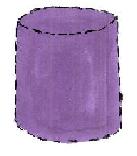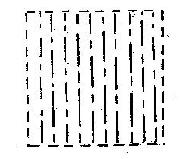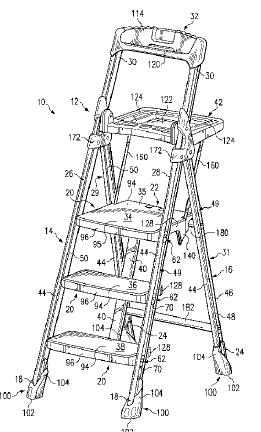Indianapolis, Ind. – Klipsch Group, Inc. (“Klipsch”) and Audio Products International Corp. (“API”), both of Indianapolis, Ind., have sued Monoprice, Inc. (“Monoprice”) of Rancho Cucamonga, Calif. alleging patent infringement, trade dress infringement, unfair competition and copyright infringement.
In an eight-count complaint, intellectual property attorneys for Klipsch and its subsidiary API allege that Monoprice has been engaged in manufacturing, importing, selling and/or offering to sell a system entitled “5.1 Hi-Fi Home Theatre Satellite  Speakers & Subwoofer” which is a less expensive “knock-off” of plaintiffs’ “ENERGY® TAKE CLASSIC™ 5.1” (“Energy Take Classic 5.1”) home theater system.
Speakers & Subwoofer” which is a less expensive “knock-off” of plaintiffs’ “ENERGY® TAKE CLASSIC™ 5.1” (“Energy Take Classic 5.1”) home theater system.
Count I of the complaint alleges the infringement of API’s Patent No. 6,725,967 (“Low distortion loudspeaker cone suspension“; also called the “‘967 Patent”) which was issued by the U.S. Patent Office in 2004.
The system has apparently been well received, garnering positive reviews and selling well. In Count II, “Trade Dress Infringement and Unfair Competition,” it is alleged that API has continuously promoted the Energy Take Classic 5.1 system and its predecessors and that, as a result of the commercial success of the systems, the systems’ trade dress has acquired secondary meaning among relevant consumers as an identifier of the source of the Energy Take Classic 5.1 system. The complaint further alleges that Monoprice’s conduct is causing confusion among consumers as to the affiliation of Monoprice with API and as to the origin of Monoprice’s goods.
Counts III through VII [NB: this should have been “III through VIII”; “Count III” was enumerated as a separate count twice in the complaint], all pertain to copyright infringement. More specifically, it is alleged that Monoprice has violated the copyrights of:
· the Energy Take Classic 5.1 Home Theatre System as a whole
· the Energy Take Classic 5.1 Satellite Speaker
· the Energy Take Classic 5.1 Center Channel Speaker
· the Energy Take Classic 5.1 Subwoofer Speaker
· the Energy Take Classic 5.1 Subwoofer Backplate
· the Energy Take Classic 5.1 Owner’s Manual
The complaint lists 14 separate requests for relief [NB: these appear, upon first count, as 13; however “request for relief” letter “k” is listed twice]. Among these are requests for judgments against Monoprice for infringement of the ‘967 Patent, trade-dress infringement, unfair competition and copyright infringement. API seeks compensatory damages and, for willful and deliberate wrongdoing by Monoprice, statutory damages up to treble the actual amount found or assessed by the court. API also asks the court to enjoin infringing behavior by Monoprice. Finally, it asks for attorneys’ fees, costs and expenses.
Practice Tip: There is certainly some overlap between design-patent infringement and copyright infringement. However, the multiple counts of copyright infringement for speakers and similar “original work[s] of authorship” – all of the applications for which were filed on February 22, 2013 – attempt to proceed under copyright law against alleged infringements that seem more appropriately considered to be a matter of design-patent law. Proceeding under copyright law, however, does have two significant advantages: a liberal filing period and a substantially longer period of protection. Many products are brought to market without having filed for a design patent. If the application for such a patent is not filed within one year of the public offering or sale of the products, the statutory bar under 35 U.S.C. § 102 will prevent the design patent from being issued. Copyright has no such strict application deadline. Additionally, the 14-year life of design-patent protection is in stark contrast to the protection available under copyright law to a corporation for a work-for-hire, which can extend over 100 years.
Continue reading















